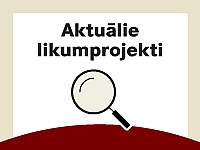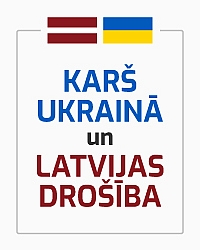 Galerija
Galerija
On Friday, 18 January, when opening the Annual Summit of the Baltic Assembly and the Nordic Council, Raimonds Vējonis, President of the Baltic Assembly, said: “The priorities of Latvia’s presidency of the Baltic Assembly for this year are, on the one hand, competitive and innovative development of the Baltic economies through implementing a joint Baltic policy on external economy and investment, and, on the other hand, European Union’s development cooperation”.
“In order to develop a competitive economy, it is necessary to implement joint projects in the areas of infrastructure, transport, renewable energy sources, science, research and innovation,” Vējonis stressed, adding that work on joint health-care and resort-industry projects must be continued.
During its presidency of the Baltic Assembly (BA), Latvia will also focus on joint representation of Baltic economic interests in international markets. The President of the BA emphasised that the current financial and economic situation of the Baltic States, with their very small economies, impels them to consider an active policy in the area of foreign trade. “We plan to continue the initiatives that the MPs from three regions began last year in order to create an innovative and multilateral cross-border mechanism to facilitate combating tax fraud,” stated Vējonis.
The participants of the Summit agreed that the Baltic States and the Nordic countries have similar viewpoints and that this is a good platform for strengthening cooperation. In discussions on the priorities for cooperation between the BA and the Nordic Council, the stress was on the need to strengthen lobbying the interests of the Baltic Sea region in the European Union (EU) and to pool resources in order to stimulate the development of the entire region by focusing on projects related to innovation, renewable energy sources, environment and the protection of the Baltic Sea. The participants highlighted the close connection between the region’s financial markets and the need to jointly combat the shadow economy and illegal employment by strengthening the exchange of information.
When discussing the cooperation of the Baltic Sea region’s countries in the EU, the participants of the Summit noted that their economic development vitally needs coordinated and possibly simultaneous implementation of EU directives so that equal conditions apply to all the countries of the region.
The President of the BA also recalled that in their quest to renew their independence and join international organisations, the Baltic States received substantial support from their Nordic neighbours. “Now it is only logical that similar support be provided to Belarus for developing a democratic state and society. In order to ensure stability in the region, it is important to maintain good relations and cooperation with EU’s eastern neighbours. The EU wants to see a modern and democratic Belarus – a country that shares European values such as democracy, human rights and the rule of law,” Vējonis said, adding that attention should also be paid to developments in other Eastern European countries – Ukraine, Moldova, Azerbaijan and Georgia. Marit Nybakk, President of the Nordic Council, also stated that Europeisation should go beyond the EU’s borders and expressed her conviction that international organisations such as NATO are also interested in the democratisation of Eastern European countries.
Saeima Press Service









